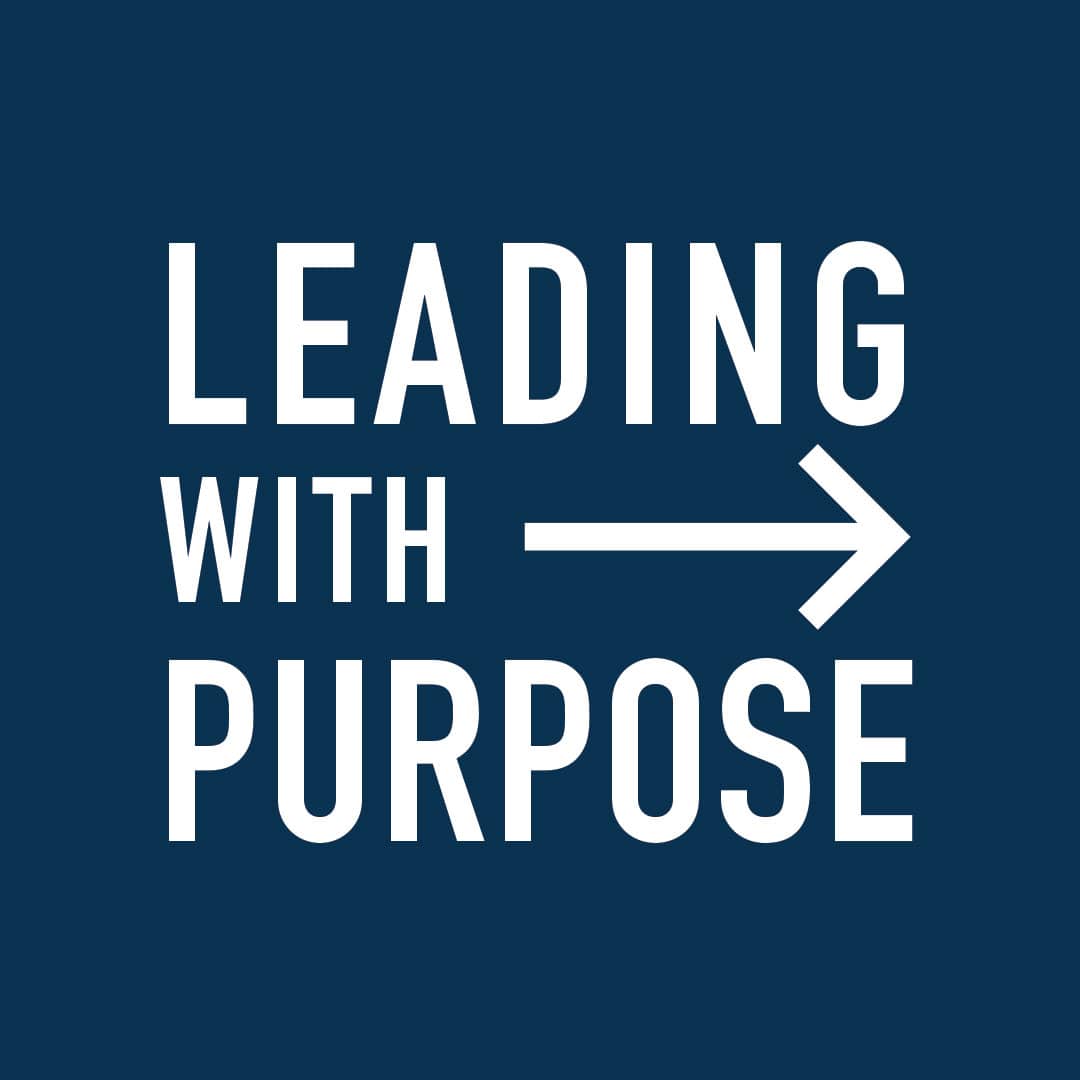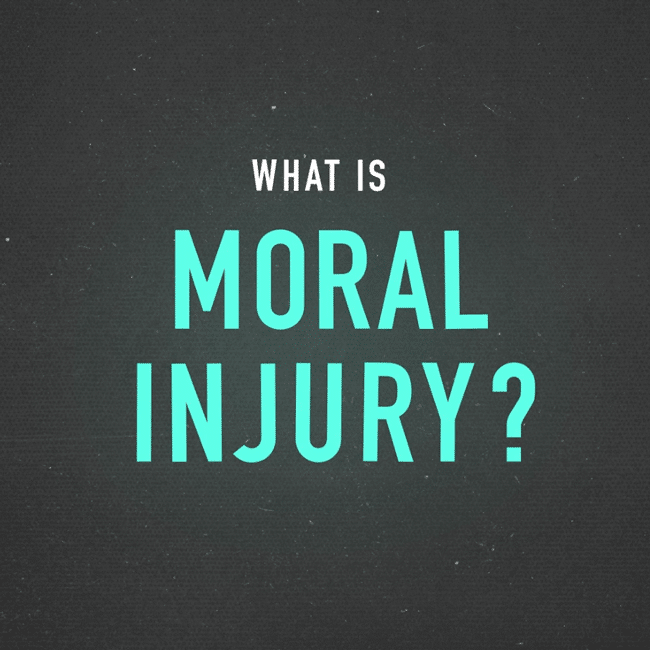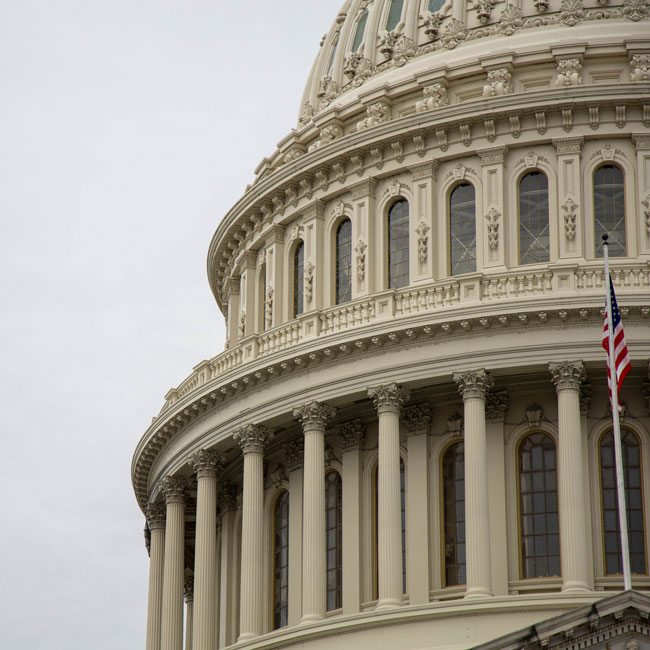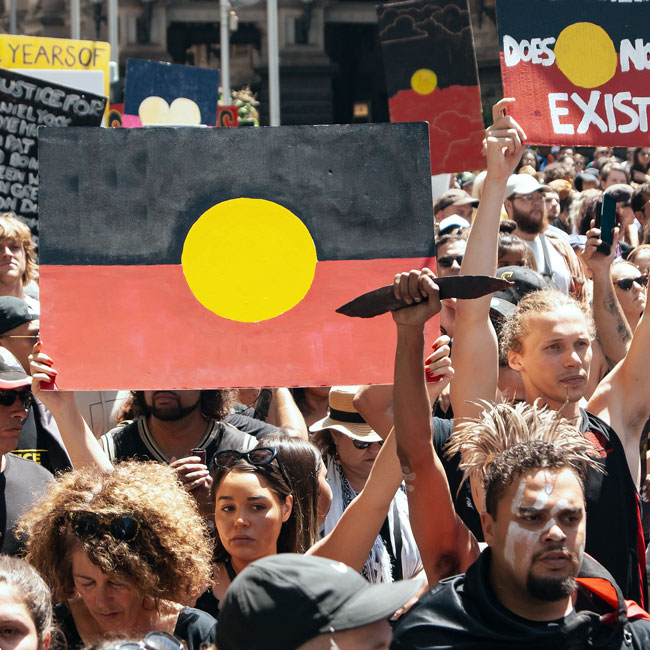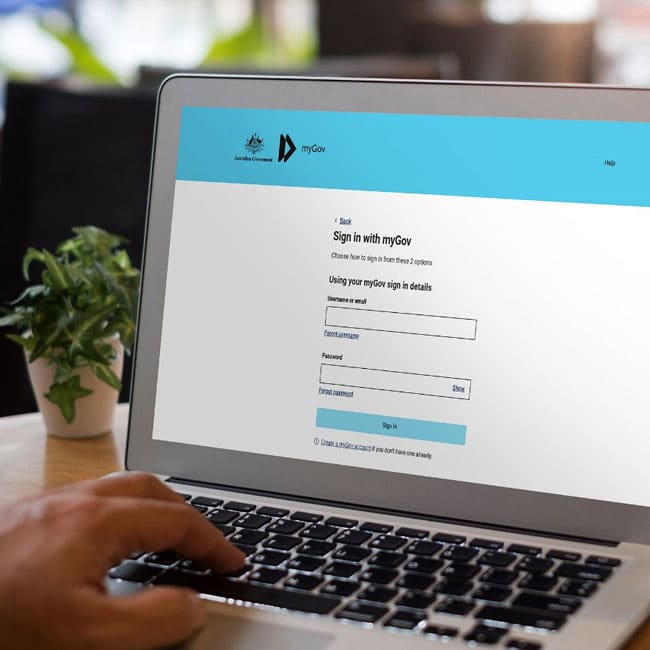Leading With Purpose

A new podcast series with valuable insights on business sustainability, social responsibility and ethical decision making.
A podcast series with valuable insights on leadership, business sustainability, social responsibility and ethical decision making.
Hosted by Dr Simon Longstaff AO from The Ethics Centre, this is a podcast for emerging and established leaders interested in how the business world is changing.
Until recently, being a successful business person was synonymous with maximising profits. Today, the measures for success are more difficult to define, with environmental and social responsibility, long term sustainability, and ethics added to the mix.
In this series, we speak to pioneers in business, whose ideas of leadership challenge traditional stereotypes. We gain insights into how they got to where they are, what good leadership looks like and what advice they have for the business leaders of the future.
Hear from influential business leaders on how they approach leadership, ethics in their work and how they see the future shaping up.
In the latest episodes, we talk to CEO of Mirvac Susan Lloyd-Hurwitz, former Chief Executive and Artistic Director of the London Philharmonic Orchestra Tim Walker, Professor of Collective Intelligence, Public Policy and Social Innovation at University College London Sir Geoff Mulgan, Experience Director with Oracle Roshni Hegerman, and founders of Life Itself Sylvie Barbier and Rufus Pollock.
Catch up on insightful conversations with renowned Australian business leader David Gonski, environmental economist Pavan Sukhdev, practical campaigner Dame Julia Cleverdon DCVO CBE, founding Executive Director of the United Nations Global Compact, Deputy Chair of Australia Post Holly Kramer and world authority on corporate responsibility and sustainable development John Elkington.
“I think we are humans and as managers we must never forget that we’re humans. And we have obligations to our society as humans which we bring to every part of the world in which we work.” – David Gonski
It’s important to understand that it’s not all about you, that the world is about others, that you occupy it with. So how can you actually help make things better, not just for yourself, but for the people around you? – Roshni Hegerman
“Companies are not merely machines to make money for shareholders, they should have purpose. In fact, they should begin with purpose and then define their path to profitability. And these ideas would have been crazy 10, 15, 20 years ago, but they’re not anymore.” – Pavan Sukhdev
Sign up for more business insights with Professional Ethics Quarterly newsletter here.
READ MORE
Nothing found.
Whats inside the guide?
WITH THANKS
If you’d like more business ethics case studies, leadership insights and emerging ethical trends sign up to our Professional Ethics Quarterly newsletter.
The Ethics Centre is a world leader in assessing cultural health and building the leadership capability to make good ethical decisions in complexity. Read more about our Consulting services for organisations or consider joining our Ethics Alliance.
A production of The Ethics Centre. Produced by Kara Jensen-Mackinnon. Music by Podington Bear. Hosted by Dr Simon Longstaff.
Ethics of making money from JobKeeper

Ethics of making money from JobKeeper
Opinion + AnalysisBusiness + Leadership
BY Joshua Pearl The Ethics Centre 10 SEP 2021
Making money from JobKeeper is not just profit maximisation. It’s free-riding.
When the Federal Treasurer announced JobKeeper in March 2020, the COVID-19 pandemic was expected to wreak economic havoc across Australia. Thousands of businesses would go bust. Millions of people would be unemployed. Billions in economic output would be lost. The Australian Government declared the (then) $130bn scheme would maintain “the connection between the employer and the employee” by making cash payments to eligible companies (those anticipating, through self-assessment, at least a 30% fall in revenue) for each employee kept on the books. Australia was bracing for economic ‘Armageddon’ and JobKeeper seemed rational and just.
Economic ‘Armageddon’ never arrived, yet billions in Jobkeeper were paid. And instead of payments going only to businesses in need, JobKeeper was paid to businesses for which coronavirus has been a boon. Shareholders and managers have profited from a scheme which the Business Council of Australia described as “fair and common-sense”, and which now appears to be neither of the two.
But in profiting from JobKeeper, have businesses done anything wrong?
Some people continue to argue that companies are obliged to maximise shareholder profit because they have a principal-agent duty to shareholders to do so (the shareholder primacy theory). But even so, there are constraints on what is allowed to be done by a company seeking to maximise profit. Nearly everyone agrees that companies should not break the law. It is not acceptable when a restaurant replaces mincemeat with sawdust in order to reduce costs. It is not permissible when a technology company increases revenue by spying on users. Beyond the law, however, most people also agree that companies have moral obligations to society.
Beyond the law, however, most people also agree that companies have moral obligations to society.
Even the individual most closely associated with ‘shareholder primacy’, Milton Friedman, argued profit-maximising companies should not only obey the law, but also must act in line with society’s ethical norms:
“There is one and only one social responsibility of business – to use its resources and engage in activities designed to increase its profits as long as it stays within the rules of the game, which is to say, engages in free and open competition without deception or fraud…conforming to the basic rules of society, both embodied in law and those embodied in ethical custom.”
As Friedman argues, these obligations should act as constraints on a company’s profit maximising motive. A company that orders an employee to drive past an accident on a remote freeway because rendering assistance doesn’t maximise profit, certainly fails our basic moral intuitions of what is acceptable.
To determine whether profitable companies ought to return their JobKeeper payments, we must determine whether companies have a moral obligation to do so. As the Federal Treasurer has made clear, companies have no legal obligation to return the funds. JobKeeper was intentionally designed by the Federal Government to impose minimal obligations on companies when receiving public funds – a position in stark contrast to the policy applying to individual citizens. It has been argued these minimal reciprocal obligations were essential to ensure the impediments to JobKeeper take-up were minimised.
If tax avoidance is “morally wrong”, as claimed by Gerry Harvey, so too is profiting from JobKeeper.
So, what of the moral obligation? Perhaps the best place to begin is by recognising that subsidies are simply a negative tax. So, if tax avoidance is “morally wrong”, as claimed by Gerry Harvey, so too is profiting from JobKeeper.
One way to argue the wrongness of tax avoidance (and by extension profiting from JobKeeper) is to consider Herbert Hart’s “principle of fairness”. The principle, in short, posits that those who benefit from the efforts of others have a moral obligation to reciprocate. The argument behind this principle is that when companies or individuals avoid tax, yet enjoy the public benefits provided by the State (the protections granted by the military; the law and order provided by the police and the judiciary; the well-educated citizenry; the functioning health-care system) they free-ride on the contributions of other taxpayers.
There are specific examples that illustrate this principle well. When James Hardie relocated its head office to Ireland, where the corporate tax rate is 12.5%, it is hard to see how this was making a fair contribution to Australia, where the majority of its shareholders reside. As Nick Kyrgios uses the Bahamas as his tax residence, where the personal tax rate is 0%, it is hard to see how this justly contributes to the nation which has not merely supported his career, but created the foundation for it. While donating to bushfire victims $200 per ace that he hit is meritorious, it does not offset tax avoidance because taxation is not charity. And in any case, making hundred-dollar donations is not equivalent to millions in avoided tax that did not fund the bushfire recovery.
Profiting from JobKeeper should be considered no different to tax avoidance. If companies who set up off-shore trusts to minimise their tax bill are considered free-riders on Australian society, so too should companies who unfairly profit from JobKeeper. These companies place the further profits of their shareholders ahead of alternate uses of taxpayer dollars. Ahead of more ventilators, more ICU beds and more nurses. And ahead of lower Government debt which will one day need to be repaid by the next generation of Australian taxpayers – the youth who are amongst the hardest hit by COVID lockdowns.
Personally, I find Hart’s principle of fairness has substantial force, as it seems most Australians do. But judging from the fact that many companies have refused to repay the profits they have generated from JobKeeper, it is clear that not everyone agrees. These companies and their shareholders are claiming they have a right to be held to a standard different to that which applies to everyone else in Australia. They claim they have a right to free-ride.
Ethics in your inbox.
Get the latest inspiration, intelligence, events & more.
By signing up you agree to our privacy policy
You might be interested in…
WATCH
Health + Wellbeing, Business + Leadership
Moral injury
Big thinker
Business + Leadership
Big Thinker: Karl Marx
Opinion + Analysis
Business + Leadership
How to deal with an ethical crisis
LISTEN
Business + Leadership
Leading With Purpose
BY Joshua Pearl
Joshua Pearl is the head of Energy Transition at Iberdrola Australia. Josh has previously worked in government and political and corporate advisory. Josh studied economics and finance at the University of New South Wales and philosophy and economics at the London School of Economics.
BY The Ethics Centre
The Ethics Centre is a not-for-profit organisation developing innovative programs, services and experiences, designed to bring ethics to the centre of professional and personal life.
Why we need land tax, explained by Monopoly

Why we need land tax, explained by Monopoly
Opinion + AnalysisBusiness + Leadership
BY Joshua Pearl 25 AUG 2021
Most people know the game Monopoly. But few are aware Monopoly was inspired by political economist Henry George’s warning against a dystopic society where land, water and minerals are owned by the dominant few.
To win in Monopoly, first you buy natural resources. Then you monopolise the land. Add some houses and hotels. And finally, force your adversaries into bankruptcy. In the game, it helps to be strategic, but mainly it helps to be lucky. Lucky to arrive first. Lucky to be able to hoover up the best land. In the end, lucky to crowd out the others, making them indigent losers.
Henry George was a brilliant self-taught 19th century American political economist. An advocate for free-trade and an opponent of protectionism, George is however best known for his criticism of the monopolisation of natural resources, arguing this both inhibits economic efficiency and is manifestly unfair. To achieve natural resource equality, George argued natural resources should be taxed at the level it would cost to rent the “unimproved” land. These taxes could be used to abolish other taxes (George’s position was to abolish all taxes except land tax), help fund government expenditure, such as the military, or redistribute in equal proportion to citizens.
Georgism is not an argument for material equality in any meaningful sense. Equal natural resource ownership is consistent with large levels of inequality when it comes to income and the ownership of non-natural assets. A Georgist might argue individuals own 100% of their labour income; that the industrious builder deserves his multiple houses (but not land), cars and boats, and that these are his alone; that the tech entrepreneur deserves her billions but has no right to buy up huge swathes of land. A Georgist position is consistent with minimal state intervention across welfare, education funding and paid parental leave.
The ideas of Henry George have garnered support from various quarters. Economist Joseph Stiglitz has argued Henry George’s proposal could fund the optimal supply of local public goods. Leader of the Chicago School of Economics Milton Friedman said, “in my opinion, the least bad tax is the property tax on the unimproved value of land, the Henry George argument of many, many years ago”.
One reason why equal natural resource ownership is preferable is because the alternatives are so underwhelming.
The alternatives of the ideological left, crudely speaking, have disastrous economic consequences. Under collective ownership, government ineptly decides what is produced from natural resources, undermining individual choice and failing to respect citizens. While under common ownership, people use natural resources whenever and however they choose, destroying the environment and economy, as predicted by the tragedy of the commons.
The alternative approaches of the ideological right, again crudely speaking, have their own problems. Primacy is given to first arrivals (though curiously, this line of argument is seldom extended to First Nations people), treating citizens unequally. Like Monopoly, first arrivals win, and second arrivals lose. These arguments typically rest on the ambiguous liberal Lockean proviso that “enough, and as good, left in common for others” or the harsher libertarian Nozickian argument that non-landowners need only pass a subsistence baseline living standard (essentially, non-landowners can eat and have water). But these claims ignore that natural resources are not made by anyone. And if no one has done anything to deserve the unimproved natural resources, and citizens of a country are equal, why are they granted such unequal rights over natural resources, the literal foundation of a country?
To Henry George, every citizen has an equal moral claim to the earth and without this, there is no equality among citizens.
In Australia, we are something of a Hasbro Monopoly ‘Special Edition’. Tech billionaires and their ilk hold some hundreds of millions worth of natural resources, while the mob from Broken Hill have somewhere closer to, and more likely very near, zero. Foreign investors such as Canadian pension funds and the Chinese Government own 14% of Australian agricultural land and 11% of Australian water assets.
Overall, Australian natural resources are worth more than seven trillion dollars (about 85% of which is land, driven by city land values), equating to around $300,000 per person. However, the bottom 20% of Australian households (typically younger folk, most likely regional or outer suburban people) have an average natural resource wealth of under $20,000 (and an average net wealth of around $25,000).
Yet there are reasons to be optimistic. The ACT is 10 years into their 20-year plan to abolish stamp duty and replace this with a land tax, providing instructive “dos” and “do nots” for other jurisdictions. And the NSW Government, with a coalition of support from real estate bodies, accountants, economists and community representative bodies, has proposed a land tax which sensibly considers a gradual introduction of land tax, ensuring fairness for those who have already paid stamp duty, although the proposal insensibly considers making land tax optional.
Overtime, a NSW land tax could be used to reduce other taxes, such as payroll tax, levied by the state government, or income tax, levied by the federal government. Reducing income taxes would reverse the peculiarity of the Australian tax system that we socialise the largely privately created wealth of labour, and privatise the naturally created wealth of natural resources.
Economists boast that a land tax boosts economic productivity, stimulates investment and increases efficiency, all neat reasons for a land tax. But the overwhelming case for an Australian land tax is fairness: that Australian dirt, water, ore and air, are owned by each Australian equally. The overwhelming case for a land tax in Australia is to ensure we don’t become a game of Monopoly.
Ethics in your inbox.
Get the latest inspiration, intelligence, events & more.
By signing up you agree to our privacy policy
You might be interested in…
Opinion + Analysis
Business + Leadership
‘Woke’ companies: Do they really mean what they say?
Opinion + Analysis
Business + Leadership
Why we can’t learn from our past (and shouldn’t try to)
Opinion + Analysis
Business + Leadership
Recovery should be about removing vulnerability, not improving GDP
Opinion + Analysis
Business + Leadership, Climate + Environment, Society + Culture
Overcoming corruption in Papua New Guinea
BY Joshua Pearl
Joshua Pearl is the head of Energy Transition at Iberdrola Australia. Josh has previously worked in government and political and corporate advisory. Josh studied economics and finance at the University of New South Wales and philosophy and economics at the London School of Economics.
It’s time to consider who loses when money comes cheap
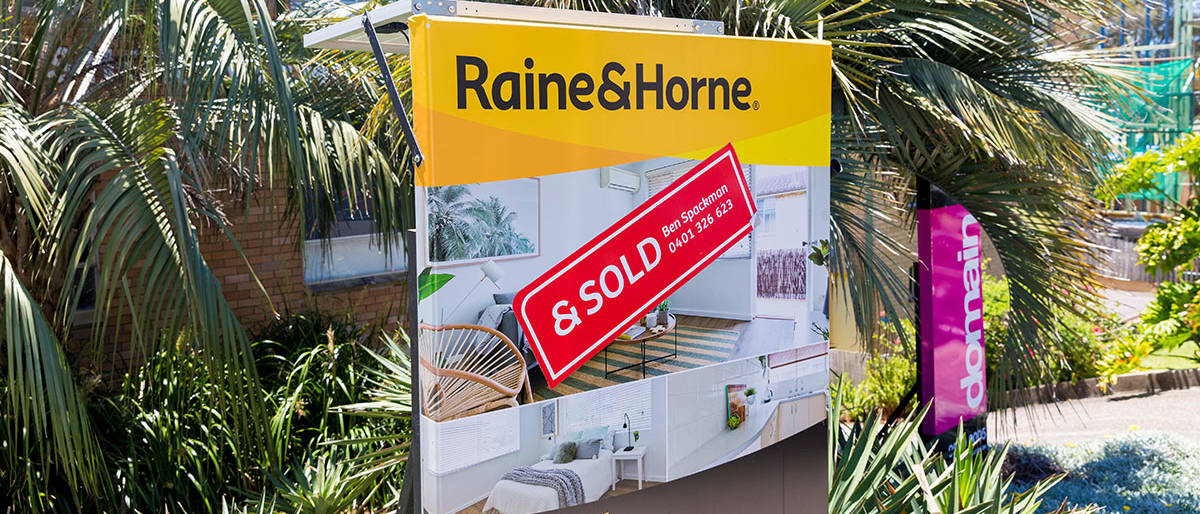
It’s time to consider who loses when money comes cheap
Opinion + AnalysisBusiness + Leadership
BY Joshua Pearl 21 APR 2021
Monetary policy has yielded substantial social and economic benefits to modern economies.
Not least the achievement of low and predictable price stability. But to whose benefit?
It’s no secret that monetary policy increases the wealth inequality gap. That’s because it benefits those with assets, and by doing so it widens the chasm between the very rich and everyone else, making many Australians – in particular, the least financially secure – worse off.
While governments and central banks are openly aware of the inequalities these policies create, they have not taken measures to appropriately address the issue – the first step of which would be to update the RBA’s mandate.
Let me explain why. The Reserve Bank of Australia (RBA) has again announced that it’s kept the official cash rate on hold at 0.1 per cent, with the possibility it will remain thus until 2024. An RBA document released under a Freedom of Information request estimated that a permanent 1% cash rate reduction increases house prices by 30% over a three-year period.
For a middle-class family who own a $800k (median Australian) home, a 1% interest rate reduction increases their wealth by $240k. For the very rich who own a $100m portfolio of properties, their wealth increases by $30m, a windfall gain $29.76m greater than that of the middle-class.
For the one-third of Australians who do not own a home, not only does their net wealth remain unchanged, but the cost of entry becomes substantially higher. They are forced to work, save and pay more for essential assets such as housing, perpetuating the cycle and widening the gap.
The fiscal equivalent is government awarding a grant of $30m to people with $100m in assets; $240k to people with $800k in assets; and nothing to people without assets.
You don’t need to be an arch-communist to consider these outcomes unfair. However, the nature of the unfairness will depend upon the theory of justice invoked. For example, equality of outcome theory finds the unequal impacts of monetary policy unjust because Australians end up with different outcomes.
Alternatively, a Rawlsian theory of justice contends that social inequality is permissible only where the inequality benefits the least well-off to the greatest extent possible – a principle known as the difference principle. For a Rawlsian, existing monetary policies are unjust because there are alternate policies (including tax and transfer and direct cash transfer policies), that would be of greater benefit to the least well-off members of society.
The theory of justice I find most compelling is equality of opportunity. Like most theories of justice, equality of opportunity can be interpreted in different ways. What I have in mind is substantive equality of opportunity theory, which holds a fair society as one where individuals with the same level of talent and motivation, have the same prospects for success, regardless of their place in the social system.
Most Australians believe equality of opportunity is an important feature of our national ethos. Indeed, many Australian politicians cite equal opportunity as a key element of a just society (even if this rhetoric is not always followed with policy). Yet what we are seeing here is falling short of that ideal.
Monetary policy that penalises the least well-off and rewards people based on their starting level of wealth does not provide Australians with equal opportunity.
Indeed, justifying why the very rich deserve windfall gains is challenging unless one ascribes to the slightly perverse virtue theory that to have wealth is to deserve more wealth.
One solution is for government to tax and transfer windfall monetary policy gains. This policy might allocate an equal benefit to each Australian, or otherwise ensure each Australian has an equal opportunity to benefit.
While simple in theory, there are several practical shortcomings with this approach. One issue is measurement: for any asset value increase, determining the increase due to monetary policy versus other factors, such as asset improvements, is not straightforward. Another issue is timing: there is typically a substantial lag between monetary policy actions and asset value increases.
However, it seems to me, the most substantial issue is political pressure from vested interest groups. Taxing assets – regardless of whether people have earned those assets or the assets were merely granted to them through government policy – is eminently harder than simply not transferring windfall wealth in the first place.
Finding prevention, rather than jumping straight to the cure, has the added benefit of avoiding the unnecessary social antagonism that occurs when creating groups of “us” (the “lifters” who are taxed) and “them” (the “leaners” who receive).
A preventative solution can be found in updating the RBA’s mandate, a change that might take on various degrees. The more substantiative update would be to require all future monetary policy to produce no negative impact on wealth inequality. This would make some existing policies unviable or mean that if pursued they must be coupled with additional mechanisms that even up the ledger for the middle and lower classes.
A middle ground alternative might merely begin by requiring the RBA to consider unfair wealth impacts as tiebreakers. For example, when all other features of opposing policy are equal, that which provides all Australians equal opportunity to benefit would be considered preferential. This mandate should require the RBA to consider various options and justify those adopted on the principle of fairness, relative to the alternatives that were overlooked.
Reserve Bank Governor, Dr Philips Lowe recently stated that the responsibility for controlling asset prices is not that of the RBA: “That’s not our mandate. I don’t think it’s sensible and I don’t think it’s even possible”.
That the RBA cannot and does not control asset prices is similar to the fact that the RBA cannot and does not control the social phenomenon of inflation.
Yet the RBA can and does influence asset prices, simply look at the ripple effect of the 0.1% cash rate. The RBA can and does also target asset prices, noting the RBA bond-buying programs which are designed to prop up bond prices. To suggest otherwise is misleading.
Like any other public institution, the RBA is accountable to those they serve – the general public – not to their own ends. And the Australian public may want a little more rigour in that accountability than, ‘that’s not our mandate’ when dismissing the policy options put forth by economists such as Milton Friedman, Frederic Mishkin and Patrick Honohan.
It might be true that alternative policy options such as cash transfers through the budget (where the central bank issues money directly to the government who distribute it) or direct cash transfers (where the central bank issues money directly) are unworkable.
However, allowing the RBA to dismiss their policies’ negative effects because their mandate does not require this consideration, is not something Australians should consider acceptable.
Ethics in your inbox.
Get the latest inspiration, intelligence, events & more.
By signing up you agree to our privacy policy
You might be interested in…
Opinion + Analysis
Business + Leadership, Politics + Human Rights
A foot in the door: The ethics of internships
Opinion + Analysis
Business + Leadership
Productivity isn’t working, so why not try being more ethical?
Opinion + Analysis
Climate + Environment, Business + Leadership
We’re in this together: The ethics of cooperation in climate action and rural industry
Opinion + Analysis
Business + Leadership, Science + Technology
Big tech knows too much about us. Here’s why Australia is in the perfect position to change that
BY Joshua Pearl
Joshua Pearl is the head of Energy Transition at Iberdrola Australia. Josh has previously worked in government and political and corporate advisory. Josh studied economics and finance at the University of New South Wales and philosophy and economics at the London School of Economics.
How avoiding shadow values can help change your organisational culture

How avoiding shadow values can help change your organisational culture
Opinion + AnalysisBusiness + Leadership
BY John Neil Michelle Bloom The Ethics Centre 15 MAR 2021
Governing culture is a board’s most challenging task. John Neil and Michelle Bloom of The Ethics Centre outline the dangers of “shadow values”. Here’s how to walk the talk.
This article was first published in the March 2021 edition of Company Director magazine for the Australian Institute of Company Directors.
While an organisation might be measured by its share price, profitability or reputation, it is defined by its culture. Culture matters because it influences everything an organisation does. It defines not only individual and team performance, it also influences how organisations manage, change and navigate complexity and uncertainty. While it is critical to an organisation’s performance and reputation, culture is notoriously difficult to identify, measure and evaluate. As a result, understanding and governing culture is a perennial challenge for boards. This is because it is comprised of implicit and explicit dimensions. It includes the shared values, principles and beliefs of people, how they work together and with each other. Many of these dimensions are visible, but many are not.
On the face of it, corporate values of excellence, respect, integrity and communication are admirable and worthy. Most organisations would be happy to identify with them. But Enron espoused these values only 12 months before declaring bankruptcy in 2001 — the largest in US history. The company had received plaudits for its 64-page code of ethics and Fortune magazine named it “America’s Most Innovative Company”. It had received numerous awards for its corporate citizenship and environmental policies.
Enron’s failings have been well documented as the prototypical case study of what can happen when an organisation decouples values from its behaviours. Less well-documented is how the implicit and unstated dimensions of an organisation’s culture shape and influence for better or worse. These aspects of culture determine what and how things get done in organisations and are driven by the implicit values/principles people hold.
“The biggest challenge for boards in governing culture is that while unspoken dimensions are difficult, but not impossible, to identify and measure, they are more powerful than the official ones because they operate below the surface.” – John Neil, The Ethics Centre
The dark side
The biggest challenge for boards in governing culture is that while unspoken dimensions are difficult, but not impossible, to identify and measure, they are more powerful than official ones because they operate below the surface. They are key to changing an organisation’s culture because they more closely reflect its actual operating culture — its “shadow” values and principles. In psychology, the alter ego is the dark side of human nature. Jung identified it as the “shadow” to describe the subterranean aspects of the psyche; those unpleasant traits we prefer to hide. As in the psyche, the shadow gains its power in an organisation by being repressed and unacknowledged, which manifests in unintended, often detrimental behaviours.
Shadow values are typically cultivated in environments where organisations are stressed by the complexity of changes occurring or a lack of focus on supporting cultural alignment with existing values and principles.
In our work with a financial services company, our evaluation revealed each of its official organisational values had powerful corollaries (shadow values) that served to shift the organisation off course significantly. One of these official values was excellence. While officially expressed in a tagline, it was experienced and evaluated in ways such as “having pride in our work”, “being willing to challenge”, and “continuous improvement”. We also found it manifested itself through a powerful shadow side driven by the unstated value of success — in behaviours such as “individualistic”, “maintain status”, and “hit targets at all cost”.
The key driver of this shadow value was an unwavering focus on “the numbers”. While the measurement of inputs, and outcomes was regarded as a management responsibility, in this individualistically success-oriented culture, hard metrics such as hitting the numbers came to serve as the sole measure of success. Individual behaviours became distorted in pursuit of that goal alone, obscuring non-financial costs and risks, which, when not easily calculable are not seen, let alone prioritised. Unintended consequences of not being aware of or managing shadow values were highlighted in the Banking Royal Commission.
Alternate shadows
The connotations of “shadow” overstate the negative effect of these values. While an organisation’s shadow values at their worst are less constructive mutations of the official ones and will always benefit from being exposed and dealt with, there are two other types, both potentially of great value for an organisation to identify and unlock.
The first is neutral in relation to the existing values/principles but offers significant potential for tipping into positive or negative manifestations. In our work with the Australian Olympic Committee (AOC), its value of excellence — with associated behaviours and traits of exemplary performance and achievement by elite Olympic athletes — was undermined by a powerful shadow cast by the implicit value of pragmatism.
The second type of alternate shadow values reinforce, amplify or supplement official values and principles. These were also present at the AOC (see breakout, right).
In our work with a large superannuation fund, a primary shadow value was that of harmony, operating below the stated value of excellence. The value of excellence was commonly expressed in behaviours such as “keeping costs low”, “continuous improvement” and “leading the industry”. The shadow value of harmony in its most positive expression meant people were respected and included. At its worst, it manifested in the avoidance of conflict, resulting in over-consultation, delaying and avoiding difficult decisions. As a result, excellence was hamstrung by a lack of agility and responsiveness to the changing environment and competitive pressures, with innovative ideas often deferred until unreasonably high standards of mitigation were in place.
Getting below the surface
Particularly for boards wanting a “true read” of a culture, a challenge is getting below the surface-level reporting facade. Because of its intangible nature, culture is not easily distilled into standard metrics. Complaints, grievance resolution time, staff turnover and engagement surveys provide a limited view of the dynamics underpinning the culture — but often, they are the board’s only sources of information. While they may identify a range of proxies for an explicit culture, they are of little use in identifying implicit beliefs, attitudes and behaviours that actually drive the operating culture.
A significant limitation is a reliance on self-reporting. One organisation we worked with displayed a widespread cultural practice in staff surveys and performance reviews. “Click five to stay alive” referred to the five-point Likert scales used to evaluate a leader’s performance — and to an expectation for subordinates to rate leaders as a “five” across all evaluation criteria to avoid recriminations. Not only did these reports give an inaccurate evaluation of performance, they also underlined a range of potential shadow values linked to inappropriate use of positional power, fear of reprisals and lack of trust.
Unless board members are particularly proactive through direct engagement with staff, having visibility of the actual operating culture beyond what management reports provide is difficult. While there is no substitute for direct engagement — in particular with how the executive team works — using tools that better uncover shadow values can help boards better see the risks and opportunities below the surface — and thereby govern more effectively.
John Neil is Director of Innovation and Michelle Bloom Director of Consulting and Leadership at The Ethics Centre. They offer Shadow Value Assessments, working directly with organisations to identify and remedy the alignment gap between the official values and the lived culture and behaviours. Find out more.
Case study: Australian Olympic Committee
Pragmatism was held in high regard as a leadership trait in the AOC. This infiltrated into ways of working and modes of governance. When the organisation shifted into “games mode” where pressures on effective delivery were intense, pragmatism exercised its greatest influence. At times, the ends justified the means, with governance standards, and operating processes temporarily suspended to expedite results. But organisational challenges compounded over time. When the AOC switched back into “non-delivery mode”, it was difficult to recalibrate around its official values, principles and sanctioned ways of working.
In our work with the AOC, we also found shadow values that reinforced the official values. There was a consistently understood and practically used principle of “athletes first”, which reinforced and amplified each of the official values, in particular that of excellence. While not recognised as an official value or principle, it influenced many desirable behaviours, judgements and decisions directly in service of the needs of athletes. In other organisations it may have been expressed as an official value of “service” or a principle such as “act in the client’s best interest”. But as a shadow principle, it was no less effective than these stated principles. It was commonly applied as a rule of thumb to many decisions made throughout the organisation — and most people defaulted to it.
Tim Soutphommasane on free speech, nationalism and civil society

Tim Soutphommasane on free speech, nationalism and civil society
Opinion + AnalysisBusiness + LeadershipPolitics + Human RightsRelationships
BY The Ethics Centre 18 FEB 2021
We believe conversations matter. So when we had the opportunity to chat with Tim Soutphommasane we leapt at the chance to explore his ideas of a civil society. Tim is an academic, political theorist and human rights activist. A former public servant, he was Australia’s Race Discrimination Commissioner at the Australian Human Rights Commission from 2013 – 2018 and has been a guest speaker at the Festival of Dangerous Ideas. Now a professor at Sydney University, he shared with The Ethics Centre his thoughts on the role of the media, free speech, racism and national values.
What role should the media play in supporting a civil society?
The media is one place where our common life as a society comes into being. It helps project to us our common identity and traditions. But ideally media should permit multiple voices, rather than amplify only the voices of the powerful. When it is dominated by certain interests, it can destroy rather than empower civil society.
How should a civil society reckon with the historical injustices it benefits from today?
A mature society should be able to make sense of history, without resorting to distortion. Yet all societies are built on myths and traditions, so it’s not easy to achieve a reckoning with historical injustice. But, ultimately, a mature society should be able to take pride in its achievements and be critical of its failings – all while understanding it may be the beneficiary of past misdeeds, and that it may need to make amends in some way.
Should a civil society protect some level of intolerance or bigotry?
It’s important that society has the freedom to debate ideas, and to challenge received wisdom. But no freedom is ever absolute. We should be able to hold bigotry and intolerance to account when it does harm, including when it harms the ability of fellow citizens to exercise their individual freedoms.
What do you think we can do to prevent society from becoming a ‘tyranny of the majority’?
We need to ensure that we have more diverse voices represented in our institutions – whether it’s politics, government, business or media.
What is the right balance between free speech and censorship in a civil society?
Rights will always need to be balanced. We should be careful, though, to distinguish between censorship and holding others to account for harm. Too often, when people call out harmful speech, it can quickly be labelled censorship. In a society that values freedom, we naturally have an instinctive aversion to censorship.
How can a society support more constructive disagreement?
Through practice. We get better at everything through practice. Today, though, we seem to have less space or time to have constructive or civil disagreements.
What is one value you consider to be an ‘Australian value’?
Equality, or egalitarianism. As with any value, it’s contested. But it continues to resonate with many Australians.
Do you believe there’s a ‘grand narrative’ that Australians share?
I think a national identity and culture helps to provide meaning to civic values. What democracy means in Australia, for instance, will be different to what it means in Germany or the United States. There are nuances that bear the imprint of history. At the same time, a national identity and culture will never be frozen in time and will itself be the subject of contest.
And finally, what’s the one thing you’d encourage everyone to commit to in 2021?
Talk to strangers more.
To read more from Tim on civil society, check out his latest article here.
Tim Soutphommasane is a political theorist and Professor in the School of Social and Political Sciences, The University of Sydney, where he is also Director, Culture Strategy. From 2013 to 2018 he was Race Discrimination Commissioner at the Australian Human Rights Commission. He is the author of five books, including The Virtuous Citizen (2012) and most recently, On Hate (2019).
This project is supported by the Copyright Agency’s Cultural Fund.
Ethics in your inbox.
Get the latest inspiration, intelligence, events & more.
By signing up you agree to our privacy policy
You might be interested in…
Opinion + Analysis
Politics + Human Rights
Do states have a right to pre-emptive self-defence?
Opinion + Analysis
Relationships
On saying “sorry” most readily, when we least need to
Opinion + Analysis
Relationships
Why hard conversations matter
WATCH
Politics + Human Rights
James C. Hathaway on the refugee convention
Join our newsletter
BY The Ethics Centre
The Ethics Centre is a not-for-profit organisation developing innovative programs, services and experiences, designed to bring ethics to the centre of professional and personal life.
No justice, no peace in healing Trump's America
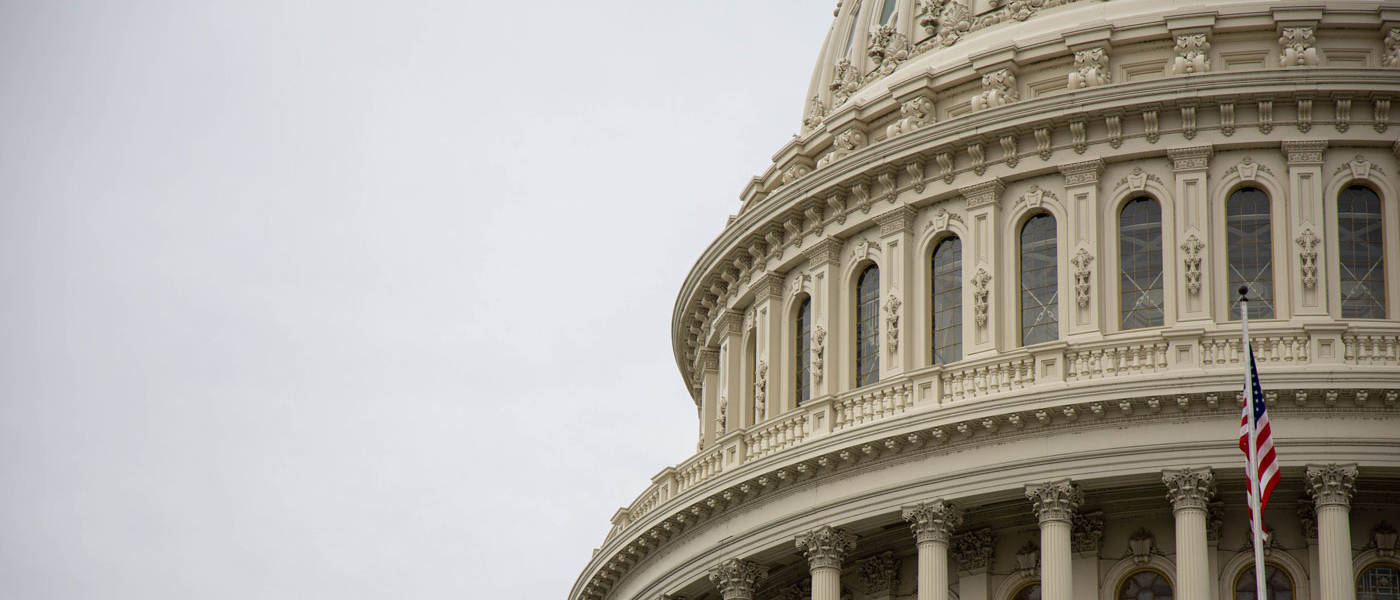
No justice, no peace in healing Trump’s America
Opinion + AnalysisBusiness + LeadershipPolitics + Human Rights
BY Simon Longstaff 21 JAN 2021
What fate should be reserved for Donald Trump following his impeachment by the US House of Representatives for his role in inciting insurrection?
Trump’s rusted-on supporters believe him to be without blame and will continue to lionise him as a paragon of virtue. Trump’s equally rusted-on opponents see only fault and wish him to be ground under the heel of history.
However, there is a large body of people who approach the question with an open mind – only to remain genuinely confused about what should come next.
On the one hand, there is an abiding fear that punishing Trump will fan the flames that animate his angry supporters elevating Trump’s status to that of ‘martyr-to-his-cause’. Rather than bind wounds and allow the process of healing to begin, the divisions that rend American society will only be deepened.
On the other hand, people believe that Trump deserves to be punished for violating his Oath of Office. They too want the wounds to be bound – but doubt that there can be healing without justice. Only then will people of goodwill be able to come together and, perhaps, find common ground.
There is merit in both positions. So, how might we decide where the balance of judgement should lie?
To begin, I think it unrealistic to hope for the emergence of a new set of harmonious relationships between the now three warring political tribes, the Republicans, Democrats and Trumpians. The disagreements between these three groups are visceral and persistent.
Rather than hope for harmony, the US polity should insist on peace.
Indeed, it is the value of ‘peace’ that has been most significantly undermined in the weeks since the Presidential election result was called into question by Donald Trump and his supporters. Rather than anticipate a ‘peaceful transition of power’ – which is the hallmark of democracy – the United States has been confronted by the reality of violent insurrection.
As it happens, I think that President Trump’s recent conduct needs to be evaluated against an index of peace – not just in general terms but specifically in light of what occurred on January 6th when a mob of his supporters, acting in the President’s name, broke into and occupied the US Capitol buildings – spilling blood and bringing death inside its hallowed chambers.
There is a particular type of peace that can be traced back to the Anglo-Saxon legal codes that provide the foundation for many of the laws we take for granted today. The King’s Peace originally applied to the monarch’s household – not just the physical location but also the ruler, their family, friends and retainers. It was a serious crime to disturb the ‘King’s Peace’. Over time, the scope of the King’s Peace was extended to cover certain times of the year and a wider set of locations (e.g. all highways were considered to be subject to fall under the King’s jurisdiction). Following the Norman Conquest, there was a steady expansion of the monarch’s remit until it covered all times and places – standing as a general guarantee of the good order and safety of the realm.
The relevance of all of this to Donald Trump lies in the ethical (and not just legal) effect of the King’s Peace. Prior to its extension, whatever ‘justice’ existed was based on the power of local magnates. In many (if not most places) disputes were settled on the principle of ‘might was right’.
The coming of the King’s Peace meant that only the ruler (and their agents) had the right to settle disputes, impose penalties, etc. The older baronial courts were closed down – leaving the monarch as the fountainhead of all secular justice. In a nutshell, individuals and groups could no longer take the law into their own hands – no matter how powerful they might be.
These ideas should immediately be familiar to us – especially if we live in nations (like the US and Australia) that received and have built upon the English Common Law. It is this idea that underpins what it means to speak of the Rule of Law – and everything, from the framing of the United States Constitution to the decisions of the US Supreme Court depend on our common acceptance that we may not secure our ends, no matter how just we think our cause, through the private application of force.
As should by now be obvious, those who want to forgive Donald Trump for the sake of peace are confronted by what I think is an insurmountable paradox. Trump’s actions fomented insurrection of the kind that fundamentally broke the peace – indeed makes it impossible to sustain. The insurrectionists took the law into their own hands and declared that ‘might is right’ … and they did so with the encouragement of Donald Trump and those who stood by him and whipped up the crowd in the days leading up to and on that fateful day when the Capitol was stormed.
There literally can be no peace – and therefore no healing – unless the instigators of this insurrection are held to account.
Finally, this is not to say that Donald Trump must suffer his punishment. There is no need for retribution or a restoration, through suffering, of a notional balance between ‘right’ and ‘wrong’. It may be enough to declare Donald Trump guilty of the ‘high crime and misdemeanour’ for which he was impeached. And if he remains without either shame or remorse, then it may also be necessary to protect the Republic from him ever again holding elected office – not to harm him but, instead, to protect the body politic.
Given all of this, I think that healing is possible … but only if built on a foundation of peace based on justice without retribution.
Ethics in your inbox.
Get the latest inspiration, intelligence, events & more.
By signing up you agree to our privacy policy
You might be interested in…
Opinion + Analysis
Business + Leadership
How avoiding shadow values can help change your organisational culture
Opinion + Analysis
Politics + Human Rights, Society + Culture
Play the ball, not the person: After Bondi and the ethics of free speech
Opinion + Analysis
Climate + Environment, Politics + Human Rights, Relationships
A burning question about the bushfires
Opinion + Analysis
Politics + Human Rights
Settler rage and our inherited national guilt
BY Simon Longstaff
Simon Longstaff began his working life on Groote Eylandt in the Northern Territory of Australia. He is proud of his kinship ties to the Anindilyakwa people. After a period studying law in Sydney and teaching in Tasmania, he pursued postgraduate studies as a Member of Magdalene College, Cambridge. In 1991, Simon commenced his work as the first Executive Director of The Ethics Centre. In 2013, he was made an officer of the Order of Australia (AO) for “distinguished service to the community through the promotion of ethical standards in governance and business, to improving corporate responsibility, and to philosophy.” Simon is an Adjunct Professor of the Australian Graduate School of Management at UNSW, a Fellow of CPA Australia, the Royal Society of NSW and the Australian Risk Policy Institute.
Ethics Explainer: Liberalism

Ethics Explainer: Liberalism
ExplainerBusiness + LeadershipPolitics + Human Rights
BY Dr Tim Dean 18 JAN 2021
Liberalism is founded on the belief that individual freedom should be the basis of a just society.
Who should decide how you live your life: where you reside; what career you choose; whom you can marry; and which gods you worship? Should it be your parents? Or your religious or community leaders? Should it be determined by the circumstances of your birth? Or perhaps by your government? Or should you ultimately be the one to decide these things for yourself?
If you answered the latter, then you’re endorsing the values of liberalism, at least in the broadest sense. Liberalism is, at its heart, the belief that each individual person has moral priority over their community or society when it comes to determining the course of their life.
This primacy of individual freedom and self-determination might seem self-evident to people living in modern liberal democracies, but it is actually a relatively recent innovation.
The Birth of Liberalism
In most societies throughout history and prehistory, one’s beliefs, values and social role were imposed on them by their community. Indeed, in many societies since agricultural times, people were considered to be the property of their parents or their rulers, with next to no-one having genuine freedom or the power of self-determination.
Brave (or foolhardy) was the medieval serf who took it upon themselves to defy their local church to practice their own religion, or defy their family tradition to seek out their dream job, or defy their clan to marry whomever their heart desired.
The seeds of modern liberalism were planted in England in the 13th century with the signing of the Magna Carta, which weakened the unilateral power of the King over his minions. This started a process that eventually enshrined a number of individual rights in English law, such as a right to trial by jury and equality before the law.
Soon even rulers – whether monarch or government – came to receive their legitimacy not from divine authority, tradition or fiat but from the will of the people. If the rulers didn’t operate in the interests of the people, the people had the right to strip that legitimacy from them. This made democracy a natural fit for nations with liberal sensibilities.
The other motivating force for liberalism was the horrifically destructive religious wars that wracked Europe after the Reformation, culminating in the Peace of Westphalia in 1648. Given the millions of lives lost due to religious and ideological differences, many people came to see that tolerance of different beliefs and religious practices might be a better alternative to imposing one’s beliefs on others by force.
Modern Liberalism
Liberalism was fleshed out as a comprehensive political philosophy by thinkers such as Thomas Hobbes, Jean-Jacques Rousseau, John Locke and John Stuart Mill, and more recently by John Rawls. While they differed in their emphases and recommendations, all liberal thinkers were committed to the core idea that individuals were – and ought to be – fundamentally free to live as they choose.
Philosopher John Locke argued that liberalism stemmed from our very nature, arguing that all people are essentially in “a state of perfect freedom to order their actions, and dispose of their possessions and persons as they think fit, within the bounds of the law of Nature, without asking leave or depending upon the will of any other man.”
Most liberal thinkers argued that individual freedom should only be limited in very special circumstances.
One of those limitations was not impinging upon the freedom of others to live according to their own beliefs and values, hence the importance of tolerance and preventing harm against others. As they say, your freedom to swing your arm ends where another person’s nose begins.
One common theme of liberalism is the importance of free speech. John Stuart Mill, for example, argued that each individual ought to be able to seek the truth for themselves rather than being obliged to accept the views imposed on them by authorities or tradition.
And in order to seek truth, they need to be able to explore, express and interrogate all beliefs and arguments. And the only way to do that was to allow wide-ranging free speech. “There ought to exist the fullest liberty of professing and discussing, as a matter of ethical conviction, any doctrine, however immoral it may be considered,” he wrote.
This freedom of speech should be limited only in very particular circumstances, such as when that speech is likely to cause direct harm to others. So shouting “fire” in a packed theatre when no such fire exists is an abuse of free speech.
This “harm principle” is still a topic of considerable debate amongst liberals and their opponents, especially around what ought to be considered sufficient harm to justify suppressing speech.
Other liberal thinkers emphasised the fact that not every person was equally able to exercise their freedom through no fault of their own. Poverty, sexism, racial discrimination and other systemic barriers mean that freedom and power are unequally distributed.
This led to what is often called “social justice” liberalism, which seeks to remove those social barriers and enable all people to exercise their freedom to the fullest extent. Some focused on economic redistribution, such as the liberal socialists, while others focused on social barriers, like feminists and anti-discrimination campaigners.
Ethics in your inbox.
Get the latest inspiration, intelligence, events & more.
By signing up you agree to our privacy policy
You might be interested in…
Opinion + Analysis
Business + Leadership
Leaders, be the change you want to see.
Opinion + Analysis
Business + Leadership
Can there be culture without contact?
Opinion + Analysis
Business + Leadership, Politics + Human Rights
Should corporate Australia have a voice?
Opinion + Analysis
Business + Leadership, Science + Technology
Blockchain: Some ethical considerations
BY Dr Tim Dean
Dr Tim Dean is Philosopher in Residence at The Ethics Centre and author of How We Became Human: And Why We Need to Change.
Market logic can’t survive a pandemic

Market logic can’t survive a pandemic
Opinion + AnalysisBusiness + Leadership
BY Dr Richard Denniss 8 DEC 2020
For decades, neoliberalism has fuelled enormous scepticism about the role of government.
Whereas the ‘invisible hand’ of market forces is used as a synonym for efficiency and progress, the ‘dead hand’ of bureaucracy congers up waste and delay. But after decades of bad press, the Covid-19 pandemic seems to be restoring Australia’s faith in government.
Almost nobody, in Australia at least, trusts the market to solve a pandemic. Over the past 10 months, Australians have assumed that their elected representatives, and the bureaucracies they oversee, will solve all manner of problems on our behalf. And, by and large, the Australian public’s faith in government has been well placed.
It was the federal government, not the travel industry, that suddenly closed our international borders on March 2020 to slow the spread of the virus into Australia. It was the state premiers who closed our state borders to slow the spread within Australia. And, via the formation of the National Cabinet, our state and national leaders have delivered clearer messages, simpler rules, and more effective policies than almost any other government in the world.
Needless to say, mistakes were made. Passengers should not have disembarked from the Ruby Princess, Melbourne’s hotel quarantine system should have been better, aged care homes should have been provided with better information and more support, and the tracing app developed by the federal health department has been a waste of time and money.
But, despite the mistakes, Australia is largely virus-free with an economy that is starting to grow again. And trust in Australian political leaders has risen to record levels. State premiers, in particular, have surged in popularity as they stepped in to protect their residents.
Nobody thinks that ‘market forces’ could have done a better job of protecting Australians from Covid-19. Indeed, the sharpest criticism from the Coalition of Daniel Andrews is that he relied too heavily on private security guards and didn’t rely heavily enough on the Commonwealth’s offer to provide troops to guard the hotels. Think about that. Daniel Andrews is being criticised for not relying on the public sector enough!
When a vaccine finally arrives, how will we decide who gets it first? Will we ‘leave it to the market’ and let drug companies set whatever price they want or will we develop clear (bureaucratic) rules for which vulnerable groups and key workers will get it first at zero price?
Governments aren’t perfect, and neither are markets. We have always relied heavily on governments to provide health, education and transport infrastructure and we have always relied heavily on markets to provide food, clothing and entertainment. Different countries, at different points in time, make different choices about how and when to rely on the government, with voters ultimately having the final say.
While it is clear that the Covid-19 pandemic will have a lasting impact on Australia’s economy, society and democracy, what is not clear is what shape that impact will be. Will we wind back the deregulation of our privatised aged care system that led to the untimely death of so many vulnerable Australians? Will we invest more heavily in public health? Will we expand and modernise our public transport system to make it less crowded? Or will we just go back to cutting taxes and cutting spending on services?
The economic language of neoliberalism has had a profound impact on our public debates, our public institutions, and perhaps most importantly, our collective expectations of what governments can and can’t do.
But as any Australian who has watched the enormous death toll and economic destruction taking place in the US and much of Europe can see, the Covid-19 pandemic has made it clear that government intervention, political leadership and a strong sense of community are essential for addressing some problems.
It’s not inevitable that Australians will translate their new-found faith in governments into support for more government action on issues like climate change, inequality or the liveability of our cities. But it’s not impossible.
After decades of hearing that governments are the problem, Australians have just seen for themselves how effective governments can sometimes be.
Despite the Covid-19 crisis, Australia is one of the richest countries in the world, and while we can afford to do anything we want, we can’t afford to do everything we want.
Neoliberal rhetoric about the inherent inefficiency of government action has for decades stifled debate about which problems we would like the government to fix and which problems we are happy to leave to the market. But the new reality is that everyone agrees that governments have an important role to play in solving big problems.
Should we have a ‘gas fired recovery’ or a ‘green new deal’. Should we invest heavily in public housing or provide tax breaks for individual property investors? While it shouldn’t have taken a pandemic to provide it, at least we finally have room in our public debate to ask such questions.
This project is supported by the Copyright Agency’s Cultural Fund.
Ethics in your inbox.
Get the latest inspiration, intelligence, events & more.
By signing up you agree to our privacy policy
You might be interested in…
Opinion + Analysis
Business + Leadership, Relationships
Employee activism is forcing business to adapt quickly
Opinion + Analysis
Health + Wellbeing, Business + Leadership
The ethics of workplace drinks, when we’re collectively drinking less
Opinion + Analysis
Business + Leadership
Tim Walker on finding the right leader
Opinion + Analysis
Business + Leadership, Science + Technology
People first: How to make our digital services work for us rather than against us
BY Dr Richard Denniss
Dr Ricahrd Denniss is Chief economist and former Executive Director of the Australia Institute. Richard is a prominent Australian economist, author and public policy commentator, and has spent the last twenty years moving between policy-focused roles in academia, federal politics and think-tanks. He was also a Lecturer in Economics at the university of Newcastle and former Associate Professor in the Crawford School of Public Policy at ANU. He is a regular contributor to The Monthly and the author of several books including: Econobabble, Curing Affluenza and Dead Right: How Neoliberalism Ate Itself and What Comes Next?
Treating citizens as customers is a recipe for distrust

Treating citizens as customers is a recipe for distrust
Opinion + AnalysisBusiness + LeadershipRelationships
BY Eva Cox 8 DEC 2020
My 1995 ABC Boyer Lectures, ‘A Truly Civil Society’, outlined the ill effects of the then decade-plus political paradigm shift to neoliberalism.
In the years following WW2, governments implemented policy changes to ensure well-functioning societies that delivered social fairness. This was to avoid a repetition of the pre-war rise of dictatorships, such as happened in Germany and Italy where democracies were overthrown by the fascists. Much of this reconstruction included expanding health, education and welfare for communities to balance the existing inequities of market wealth creation.
From the 1980s, the failing USSR and the globalising of finance via petrodollars allowed big business to shift the paradigm to market forces and reduce the scope of governments. The effects were becoming evident while I was writing the Boyer’s in 1995, as neoliberalism was exacerbating the cuts to social goals and public funding. Growing distrust of democracy was also becoming apparent in many countries, including Australia.
Now, twenty-five years of policy shifts later, including a market-created Global Financial Crisis in 2008, these changes continue to have ill-effects on democratic governance and trust. Policies such as unfair distributions of taxes that favour businesses and the better-off have exacerbated this, as has the privatising of public services and public ownership of utilities and institutions. The promise that the private model of competition and wealth creation would create trickle-down wealth failed to eventuate. Nor did we see any sign of the market lowering prices for these services, as is promised by this model. Citizens, redefined now as just customers of what were once public services, have not found the market more efficient or effective.
Prioritising growth and profits over community needs and connections exacerbates distrust of those in power.
Finding jobs becomes more difficult as growth slows, and low wages remain for many of the often-feminised essential services, such as nursing and child care. The new gig-economy has also increased feelings of insecurity. Ergo, it has not been surprising that over the last decades there have been growing feelings amongst many people in democracies, including Australia, that those in power are not to be trusted.
Now that the neoliberal paradigm shift is obviously failing, we need to devise and define alternatives. The failure has created a fertile ground for the increasingly irrational ‘strong men’ leaders to grab power. These strong men undermine the idea of democracy and surge in on a wave of distrust. We now have in Australia, as elsewhere, increasing beliefs that society is unfair, feelings of real anger and despair, and a deep distrust of the political system. It is this unfairness that is the damaging cause of most of our problems.
The range of inequities in our current system include politics and policies that respond mainly to business demands and neglect community needs. The recent budget is a good example, where subsidies were available to incentivise businesses to hire more people, even if there were too few customers. Yet much-needed jobs in community and public spheres were barely mentioned.
We need changes that create a sense of fairness by providing good social and public services. People need to feel that they live in societies where they and their contributions are valued and their voice matters. We are social beings, connected, and need to feel safe and involved.
Assuming wealth inequality is a causal factor fails to recognise the real causes: self-interested economic goals that ignore and exclude the values of fairness and trust that are necessary to create a truly civil society.
The national cabinet’s response to the pandemic, an effective public health collaboration, reminded people what good governance looks like. Consequently, it has improved the levels of voter trust. There are now signs of reversal as the PM reverts to a private sector, economic-led recovery.
Now it’s up to us. We need policies that set social goals, fix environmental damage, and create fairness and long-term well-being. Here are some radical ideas: stop privatising community services and utilities, fix the messy unfair welfare system (perhaps introduce a universal social dividend), engage communities in planning for their needs, reform the tax system so that it’s fairer in the redistribution of resources, pass the Uluru Statement from the Heart. This way, everybody should get a fair go.
Outrageous ideas? Maybe, but replacing greed and self interest with fairness requires optimism and another paradigm shift!
This project is supported by the Copyright Agency’s Cultural Fund.
Ethics in your inbox.
Get the latest inspiration, intelligence, events & more.
By signing up you agree to our privacy policy
You might be interested in…
Opinion + Analysis
Business + Leadership
Dame Julia Cleverdon on social responsibility
Explainer
Relationships
Ethics Explainer: Authenticity
Opinion + Analysis
Business + Leadership
Perils of an unforgiving workplace
Explainer
Relationships
